The heart rate gets progressively slower as a person moves through childhood toward adolescence. It can go up to 130150 beats or higher per minute when youre exercising thats normal because the body needs to pump more oxygen-rich blood around the body.
How to Take Your Heart Rate.
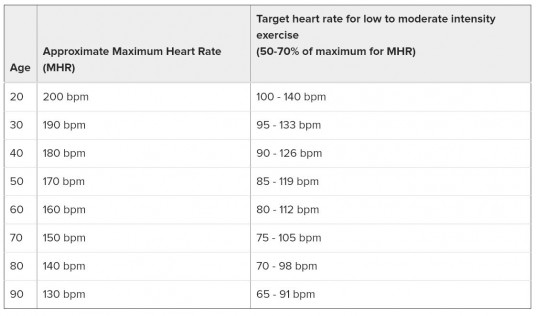
What is a normal heart pulse. An abnormally fast pulse is called tachycardia. For example a well-trained athlete might have a normal resting heart rate closer to 40 beats per minute. A pulse rate in the range of 100 to 120 may be normal after activity but if your resting pulse is over 100 it could be a problem says Dr.
When temperatures and the humidity soar the heart pumps a little more blood so your pulse rate may. Heart rates vary from person to person. The normal resting heart rate for adults over the age of 10 years including older adults is.
Your pulse is measured by counting the number of times your heart beats in one minute. What is a Normal Resting Heart Rate. The normal heart rate should be in the range of 60 to 100 beats per minute for an adult.
Generally a lower heart rate at rest implies more efficient heart function and better cardiovascular fitness. Depending on their age children can have a pulse between 43 and 180 beats per minute. How Other Factors Affect Heart Rate Air temperature.
Resting sitting or standing your pulse is usually the same. A normal resting heart rate should be 60100 beats per minute but it can vary from minute to minute. And 70 to 100 per minute for the age of 6 to 15 years.
For most men and women 60 to 100 beats per minute bpm is normal according to the American Heart Association AHA. Normal resting heart rate for kids Childrens heart rates are normally. Your child however may have a higher pulse rate.
Symptoms of an abnormal tachycardia include a pounding heart chest pain and palpitations. In some cases your health care provider may decrease your target heart rate zone to begin with 50. Its lower when youre.
A normal resting heart rate for adults ranges from 60 to 100 beats per minute. A normal pulse beats in a steady regular rhythm. Normal heart rate varies from person to person but a normal range for adults is 60 to 100 beats per.
This heart beat can be felt as your pulse on your wrist or neck. Your heart rate or pulse is the number of times your heart beats in 1 minute. For example if your heart contracts 72 times in one minute your pulse would be 72 beats per minute BPM.
Sometimes as you stand for the first 15 to. However an unusually high resting heart rate or low maximum heart rate may signify an increased risk of heart. An abnormal pulse rate below 60 bpm or above 100 bpm could increase your risk of cardiovascular disease stroke or early.
In some cases High Intensity Interval Training HIIT may be beneficial. Usually this is when your exercise heart rate pulse is 60 to 80 of your maximum heart rate. However this number may rise with age and is.
It is a simple measure to know how much your heart works during rest or activities. This is also called your heart rate. According to the American Heart Association AHA the average resting heart rate is between 60 and 100 beats per minute.
Normal resting heart rate can vary from person to person but for most adults its between 60 and 100 beats per minute. Normal healthy resting pulse rates for 74 year olds. Generally for adults a heart rate of more than 100 beats per minute tachycardia is considered as high.
Heart rate or pulse rate is the number of times your heart beats in a minute. What is a normal heart rate varies from person to person. Many parents know that their own pulse or heart rate should be within about 60 to 100 beats per minute.
The average resting heart rate HRrest for a 74 year old is 72 beats per minute 274 year old males average heart rates of 70 bpm while females average slightly higher at 73 bpm 2The normal resting heart rate range for all adults and children 10 and over is between 60 and 100 beats per minute 390 of 74 year olds resting pulses fall. Normal Heart Rate Chart When Resting A resting heart rate is defined as a pulse that is taken when you are calm sitting or lying down and the best time to measure a resting heart rate is in the morning before you leave the bed. Heart rate also known as pulse is the number of times a persons heart beats per minute.
Because heart rate generally decreases as body size increases babies have the highest pulse. Generally speaking a lower heart rate functions more effectively and efficiently. This should be discussed with a healthcare professional before beginning.
In general having a lower resting heart rate is generally healthier. Your pulse both at rest and during exercise can reveal your risk for heart attack and your aerobic capacity. Your pulse rate is the number of times your heart beats per minute.
A normal resting heart rate for adults is between 60 beats per minute bpm and 100 bpm. To measure your heart rate simply check your pulse.
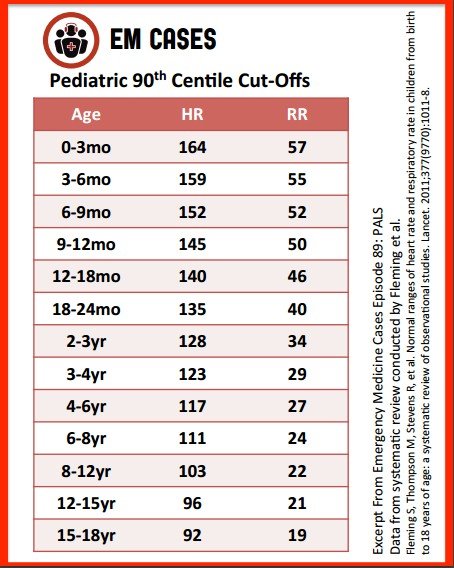

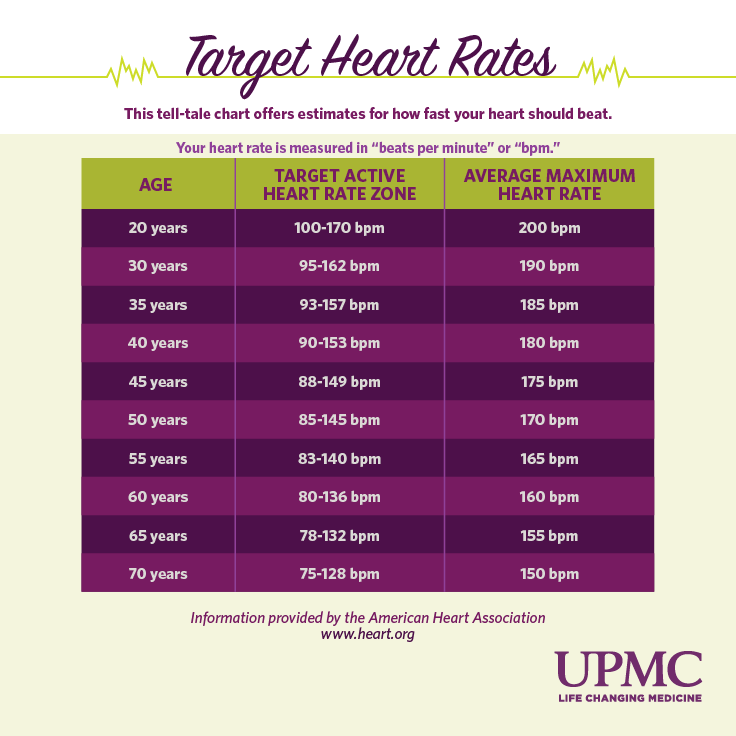

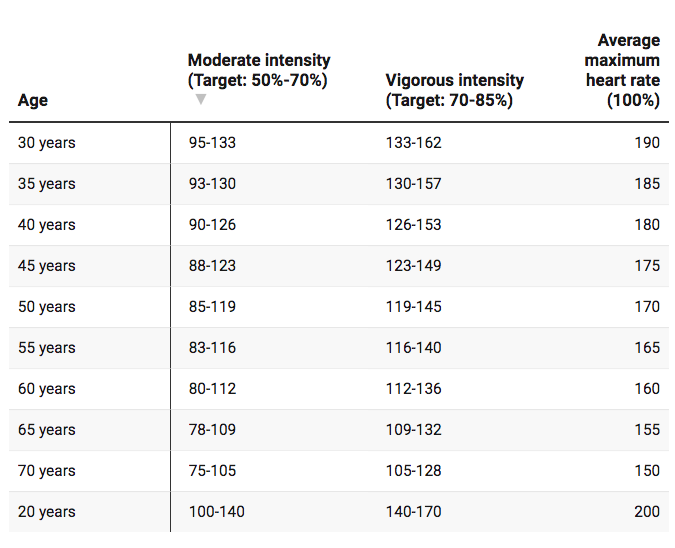


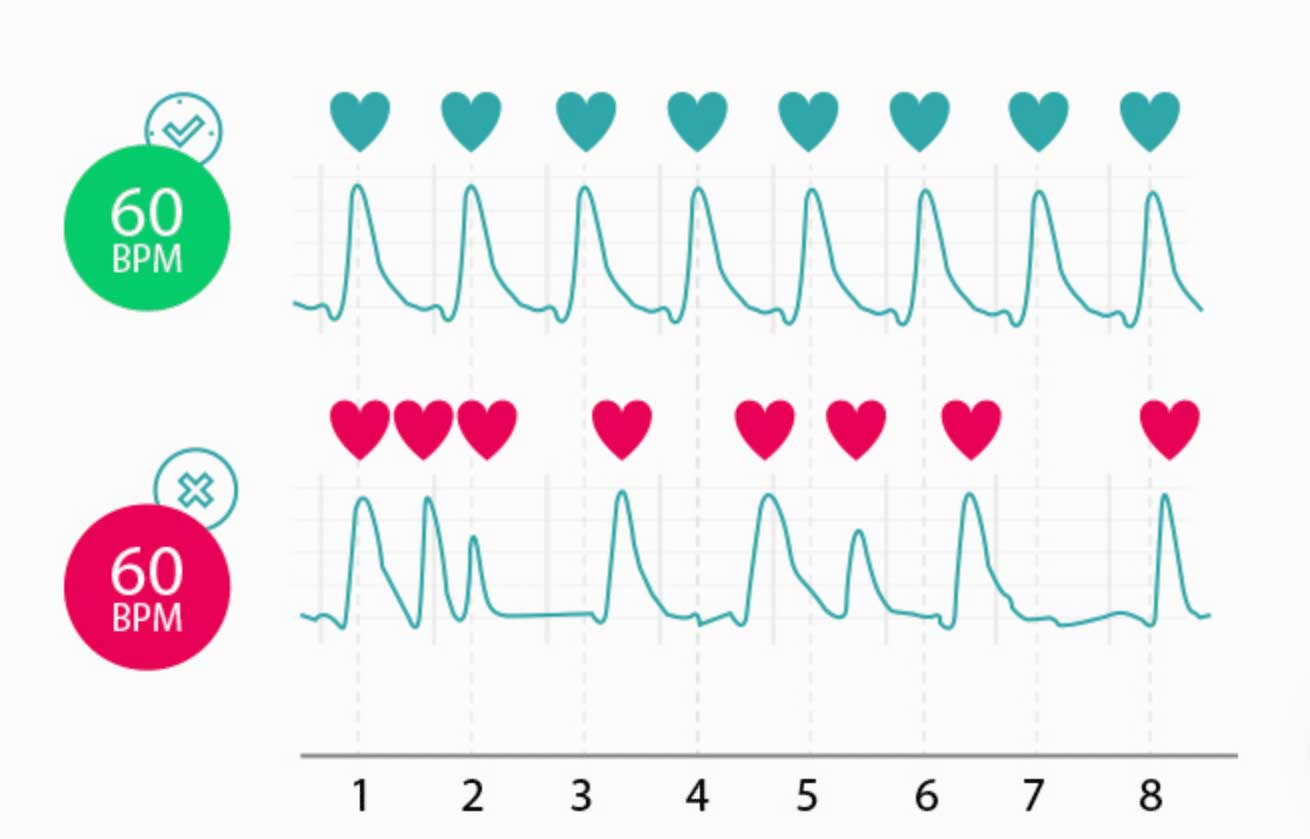
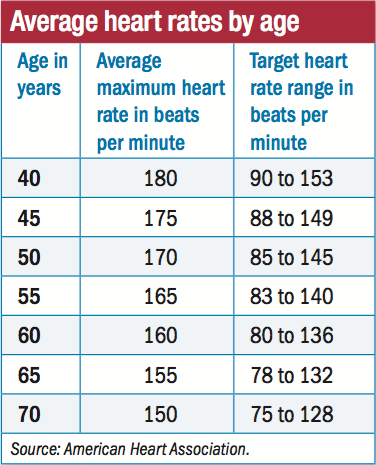



Keine Kommentare:
Kommentar veröffentlichen
Hinweis: Nur ein Mitglied dieses Blogs kann Kommentare posten.